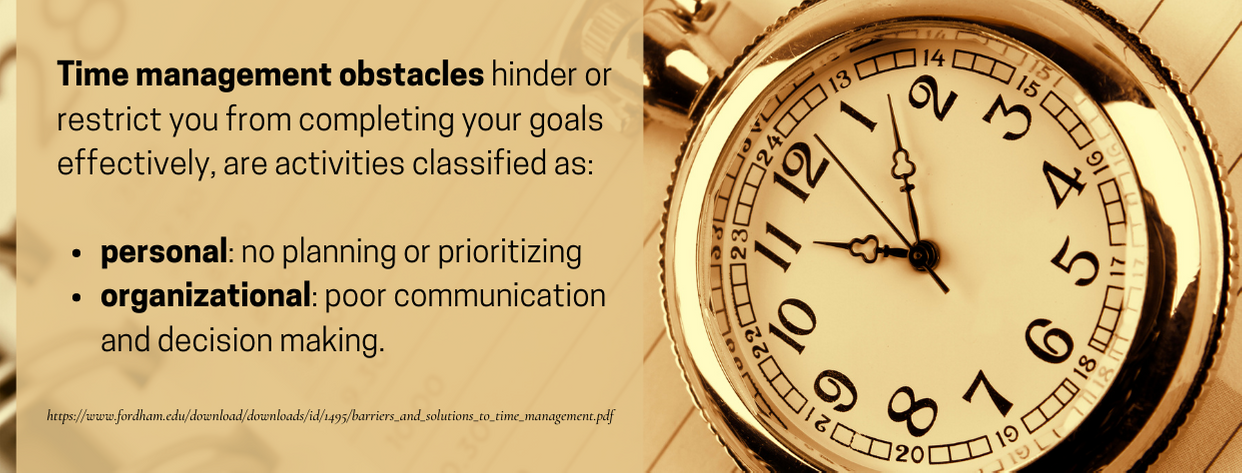Find Your Perfect Business Degree
www.business-management-degree.net is an advertising-supported site. Featured or trusted partner programs and all school search, finder, or match results are for schools that compensate us. This compensation does not influence our school rankings, resource guides, or other editorially-independent information published on this site.
Time is an element that many covet but few master. If you manage your time effectively, it reflects well on the quality of the business.
Obviously, effective time management is essential for businesses to succeed. It can help you reduce stress and accomplish tasks more efficiently while ensuring that your business operations are running smoothly.
Without a strategic approach to managing your time and resources, you may find yourself missing deadlines or losing out on potential opportunities. With that in mind, here are some of the best time management tips for your business, so you can make the most of the time you have.

What Is Time Management?

Time management is how well you distribute the time you have among the activities you perform. Try not to define time management in a vacuum. There is interconnectivity with how you prioritize and delegate your day’s activities. In an attempt to manage time, you should plan effectively. Effective planning requires making task lists and sticking to the tasks listed.
Arrange your work list in such a way that you address urgent tasks first. When you start working on the items on the list, see it through to completion. Where possible, avoid taking on multiple things at a time. Whatever your line of work, you should write down the goals and objectives you intend to accomplish.
Ensure these goals are measurable, attainable, and bound by time. Giving yourself deadlines when it comes to managing time in business is good work sense. It allows you to take command of the time you have on your hands.
The Importance of Time Management

Time is a valuable commodity. You may know how to improve your time management skills, but you will lose real insight if you do not see the importance of managing your time.
Managing your time improves discipline. Time discipline is a teachable option. Teaching employees how to make lists and adhering to them is possible. It is even possible to show employees how to prioritize.
Time management is also essential as it improves work quality. It is possible to eliminate procrastination and anxiety by effectively managing your time. It is necessary to give yourself space between projects to recuperate for optimal functioning.
Another importance of time management is the opportunities that exist when you discover new ideas. Using your time wisely gives you the chance to think “outside the box” and present options that broaden the scope of your operations. When you manage your time well, you are free to discover new things.
Time management is vital for decision-making. When you control your surroundings and balance your time, you tend to make sound decisions. Charles Richards said it best when he said, “Don’t be fooled by the calendar. There are only as many days in the year as you make use of.
One man gets only a week’s value out of a year while another man gets a full year’s value out of a week.” When you think of time and how important it is, you should think about what you can accomplish with your time. Any decision you make should be solid and rewarding.
Obstacles to Managing Your Time

In any business, managers, and leaders increase workers’ efficiency in the most effective way. Doing this task requires a grasp of managing time. You cannot make a template when it comes to time management. Therefore, you will face obstacles.
Time management obstacles are all those activities that hinder or restrict you from completing your goals effectively. Obstacles to time management carry various classifications: personal- no planning or prioritizing, and organizational communication and decision-making. However, when you think on a broad scale, obstacles to time management are presented individually. Employees tend to abuse time at work when they misuse company resources, cut their productive hours, and disregard deadlines.
Despite the obstacles to managing time, you can overcome them. Monitoring employees’ slack time is an excellent way to bring awareness and correct time-wasting.
- Time Management Strategies
- Productivity and Time Management
- Organization and Time Management Techniques
Tips and Resources on Time Management
The Pareto principle refers to how you can use 20% of your efforts to accomplish 80% of your goals. Vilfredo Pareto was an Italian economist who coined this rule. It is widely related to time management. If you seek to maximize the time you access each day or each second, you should focus on these tips for managing your time.
- First off, set goals that are time-sensitive, precisely defined, capable of accomplishment, and ones you can measure. Without the former guidelines, it is challenging to accomplish any task to the best of your ability.
- Next, make a plan and, despite the odds, stick to it as best as circumstances allow. Try not to procrastinate when putting things on your calendar. Also, set aside time to make these plans. You accomplish tasks when you define your work and take action.
- Commit to the system you create for yourself. If you choose to use electronic software tools to help, find the one that best suits your needs and accommodate a commitment to use it.
- Prioritize. Time management is all about how you position your tasks on the to-do list. One recommendation is to place high-priority items at the top and work on those first. Other functions that are quickly doable can be listed next and tackled one after the other.
- It is good to delegate. Having enough time in your day to tick all the items on your task list is sometimes impossible. For this reason, you entrust-handoff workload to supervisors and assistants when you find yourself overwhelmed or plain overbooked
- Time Management Skills
- Time Management Applications for Business
- Using Technology to Manage Your Time
- Effective Time Management Strategies for the Workplace
- Time Management Tools and Techniques
- The Effects of Poor Time Management
Things to Consider
How crucial is time management to a company’s success?
Time management is essential for a company’s success. Without proper time management, deadlines are often missed, workers are less efficient, and productivity can suffer. Good time management enables a company to plan tasks and activities, complete tasks efficiently, and create an environment of accountability.
Without proper time management, companies can easily fall behind competitors, leading to a decrease in profits and growth.
What steps can I take that will help prioritize tasks?
- Keep track of deadlines. List major goals and tasks in a to-do list with deadlines attached.
- Break down large tasks. If a task seems overwhelming, break it down into smaller manageable pieces.
- Delegate tasks. If possible, assign parts of large tasks to coworkers or employees who have the skills necessary to complete the tasks quickly and efficiently.
- Schedule your day. Block off regular time slots for specific tasks that need to be completed in order to stay on track.
- One task at a time. Focusing on one task at a time, without getting distracted, is often the best way to prioritize tasks and ensure that they are completed in a timely manner.
- Take breaks. It can be easy to become overwhelmed or frustrated with tasks. Remember to take breaks throughout the day to maintain focus and productivity.
What can I do to keep calm in a time crunch?
- Take deep breaths. Taking a few deep breaths helps reduce stress and can help bring focus back to the tasks at hand.
- Listen to calming music. Listening to calming music can help reduce stress and provide a sense of peace.
- Have a positive attitude. It is essential to stay positive and keep in mind that things will eventually get better.
- Reach out for help. It is okay to ask for help, and it may even help make the task easier.
- Break it into smaller pieces. Breaking down the tasks into smaller pieces can help reduce stress and help maintain focus.
- Prioritize tasks. Knowing which tasks are the most important can help focus and prioritize activities in order to stay on track.
More about Time Management:
